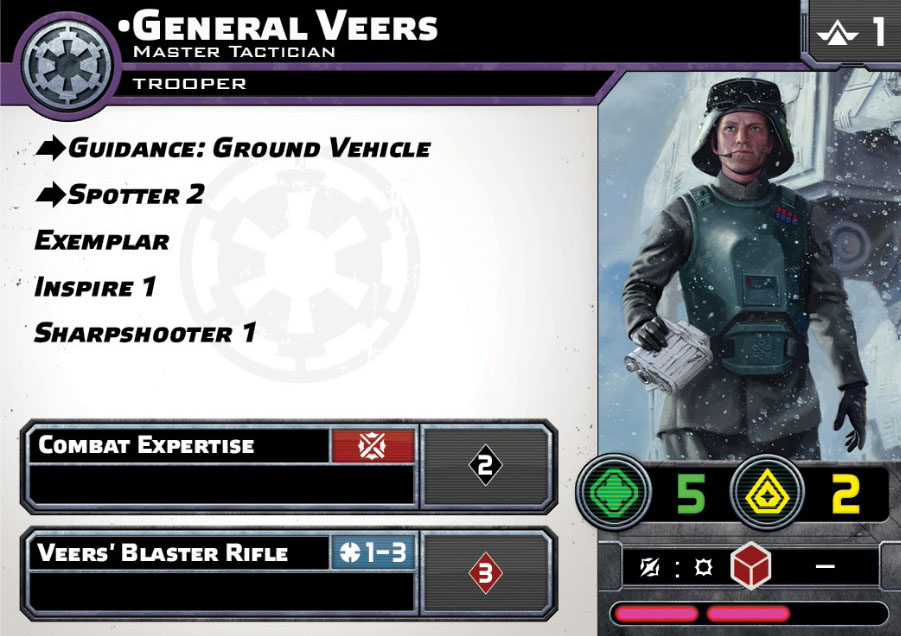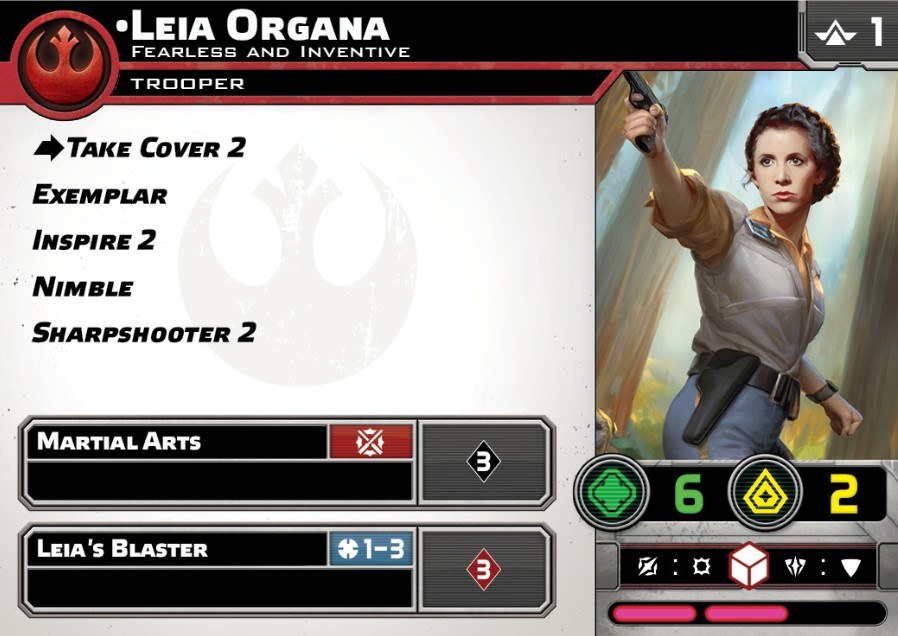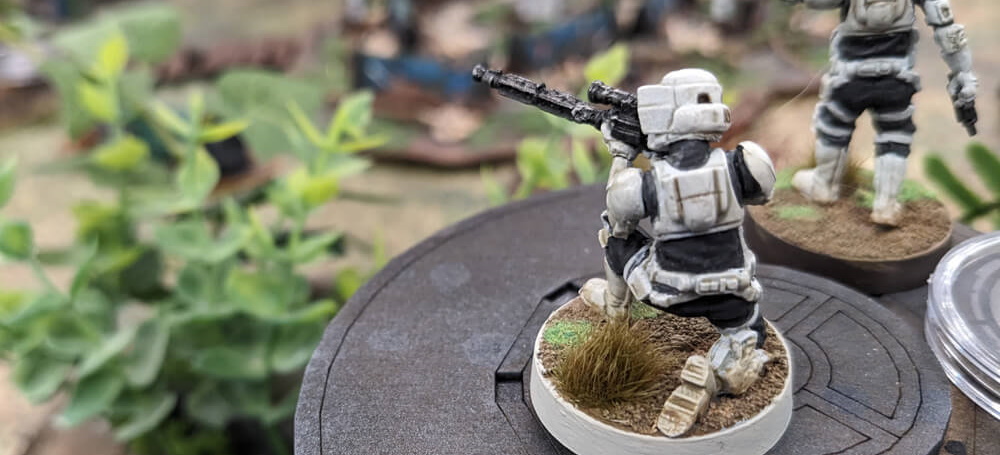Which units should receive orders during the command phase? How do you decide when torn between two units? One possible approach is to consider the time sensitivity of units. Understanding this concept will help you handle your command phase with greater confidence and build more balanced army lists. No time to waste—let’s dive right in!
What is a time sensitive unit ?
A time sensitive unit is one whose effectiveness (or sometimes survival chances) depends on the timing within a round. Such a unit needs to be activated at the right moment to be efficient. This timing management often relies on face-up order tokens, though other techniques exist. As a result, time sensitive units are prime candidates for receiving orders during the command phase.
Example
Take General Veers, for instance. To allow nearby allied units to benefit from his Spotter 2 ability, the master tactician must activate before those units. Otherwise, his ability becomes useless!

The different types of time sensitive units
Time sensitive units can be categorized into two types:
- Native
- Situational
Native units
These are units whose time sensitivity comes from their profile or playstyle.

Certain keywords trigger effects that work better early in the round, such as Calculate Odds, Suppressive, or Agile X. For example, if you’re playing Leia Organa for her Take Cover 2 ability, you’ll want to activate her as early as possible to distribute Dodge tokens to allied units. These green tokens are far more useful to the Rebels before they come under fire…than after!
Time sensitivity can also stem from a unit’s fragility. Their importance often correlates with their cost. Generally, such units need to wait for threats to be cleared before advancing. Take the 74-Z Speeder Bikes: with just six health points and white defense dice, they’re vulnerable vehicles. The mandatory movement imposed by their Speeder 1 keyword makes it harder for them to stay safe. They require close attention to be played effectively.
Similarly, Tauntaun Riders, with their fragility and Agile 1 keyword, suffer from the same issue. Poor creatures!
Situational Units
These units become time sensitive during the game, typically when they end up in a tough spot. Vulnerable units often need to retreat to survive. Imagine your bounty hunter Bossk trapped in close combat with Mandalorians while in critical condition. Activating him before those special forces increases his survival chances—not only could he potentially eliminate them, but he could also regenerate a few health points with his Regenerate 3 ability. In this scenario, Bossk becomes a high-priority activation.
Additionally, certain units play such a pivotal role in your army that they become time sensitive by nature. Consider the Atlas archetype, which revolves around a powerful hero. This hero dictates your strategy through their command cards and must be activated at the right moment.

Key Insights
Identify the ideal moment
Time sensitivity doesn’t always mean “early activation.” The right timing varies from unit to unit. For example, while Leia Organa and General Veers share similar profiles, Veers has a broader activation window. He only needs to activate before the units he targets with his Spotter 2 ability. Leia, on the other hand, must act as soon as possible to provide support to her Rebel allies due to her protective role.
Don’t confuse time sensitive units with order-hungry units
An order-hungry unit is one that triggers a positive effect when it receives an order, without depending on activation timing. For example, Shoretroopers benefit immediately from receiving orders: they can pass an order to another unit using Coordinate: Emplacement Trooper. Once they’ve received their desired benefits, there’s no rush to activate them—unless they become situationally time sensitive of course !

Need advice building your army list?
Join your country’s Star Wars: Legion Discord community and get answers to your questions.
What’s the takeaway?
To effectively use time sensitive units, you need the flexibility to activate them at the right time. If you include such units in your army list, ensure you have the resources to activate them when needed. Failing to do so will lead to underutilizing them and weaken your list’s overall performance.
However, controlling the timing of activations is challenging. You’ll likely only manage it for a few units per game. Therefore, limit the number of time sensitive units in your list. How many time sensitive units should you include ? The ideal number varies based on your list and faction. For instance, the Separatist Alliance can field more time sensitive units than other factions due to their superior order distribution capabilities.
Keep in mind that command cards can at most provide 3 orders (there are exceptions though). You can increase this number using upgrades like Seize the Initiative or Trusted Agent, if your unit allows it.
In short, planning ahead for your command phases will help you manage your native time sensitive units efficiently. And don’t forget to leave room for situational ones!
Written by :

The knowledge behind your victories matters
Share your passion and tactical experience. Critical Hit welcomes occasional contributions from its readers.








